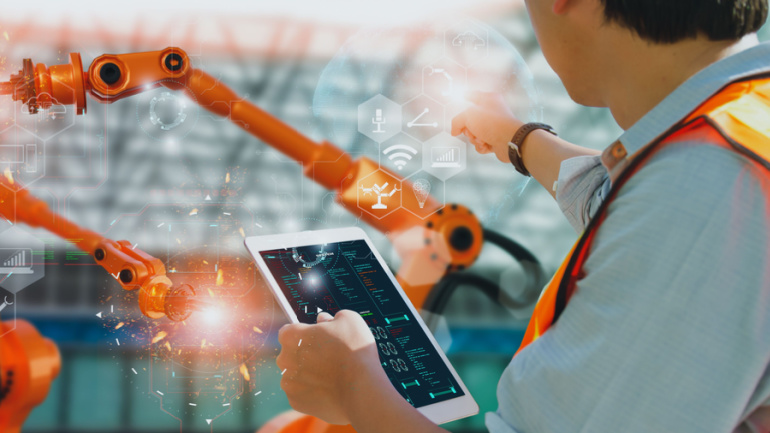In a groundbreaking partnership, Spectrum Enterprise, a division of Charter Communications, Inc., has joined forces with the Texas State Aquarium, a nonprofit organization based in Corpus Christi, Texas. The aquarium has embraced Spectrum Enterprise’s advanced technology solutions to revolutionize its wildlife rescue operations and elevate its onsite veterinary care.Attracting over half a million visitors annually, the Texas State Aquarium is renowned for its captivating displays of mammal, bird, and marine life.
In today’s fast-paced business landscape, effective communication is crucial to success. Talkroute offers a comprehensive virtual phone system that allows businesses to manage calls, texts, and meetings seamlessly. With its user-friendly interface and robust features, the phone system eliminates the need for expensive on-site equipment, making it an attractive solution for businesses of all sizes. In this article, we will explore what Talkroute is, its unique selling points, and the benefits it brings to businesses.
The premier Japan-EU Digital Partnership Council has unveiled a refreshingly ambitious approach towards bolstering global connectivity. Highlighting fundamental areas of mutual support, an intriguing plan of Arctic submarine network expansion piques interest. Meanwhile, an equally significant strategy promotes semiconductor industry growth, echoing an urgent call for autonomy in the global supply chain. These pacesetting initiatives promise not only to redefine EU-Japan ties, but also to spark essential digital security dialogues for the evolving tech landscape.
As the UK government’s ambitious 4G-enabled Emergency Services Network (ESN) faces icy progress, reports suggest potential delays until 2029 and rising costs from the initial $5 billion to over £11 billion. Observers slam the lack of a solid implementation plan, leading to ineffectual spending. Although originally planned to replace the Airwave network by 2019, the slow-paced development has compelled emergency services to incur unnecessary expenses. Further complications arise as Motorola, initially tasked with developing the ESN, withdraws from the project. As the quest for a reliable new supplier begins, it’s clear that these developments will continue to captivate telecoms industry watchers.
Outpacing the global auto industry, Zeekr, a subsidiary of Geely, has launched a groundbreaking 5G-enabled factory in Ningbo, China. Developed alongside China Unicom Zhejiang, this advanced facility leverages 5G for superior data processing, revolutionizing car manufacturing customizability. However, obstacles such as infrastructure robustness and data security come with the territory of employing 5G in production processes. Nonetheless, the potential of this intelligent blend of automotive and digital tech seems irresistible, prompting worldwide industry attention towards Zeekr’s trendsetting venture.
Breaking speed boundaries, Ericsson and MediaTek recently achieved an impressive 565 Mbps upload speed within the consumer 5G sector, sparking excitement about the potential of fixed-wireless access (FWA). This feat was made possible through the integration of two of Ericsson’s software features and MediaTek’s T830 chipset for 5G FWA routers. The growing importance of upload speed on multiple applications including online gaming, video streaming, and cloud storage is nudging broadband consumers into creators, underscoring the significance of this development.
Despite robust projections for 5G growth, the radio access network (RAN) equipment market experiences a downturn, according to Dell’Oro Group. A typical industry cycle shows that after the booming initial rollout of new mobile tech, stagnation follows as operators complete their spending cycles. However, 5G RAN could still expand by 20%-30% by 2027, failing to offset decreasing LTE investments. As telecom industry anticipates the inception of 6G, dwindling subscriber growth and restrained capital expenditures, due to economic considerations, are putting pressure on the market.
Huawei plans a comeback in the smartphone market with new 5G devices using domestic chip supplies. Concerns persist about the quality of these chips and Huawei’s absence from the Android Play Store. CityFibre challenges Openreach with a faster wholesale FTTH service, while Optus collaborates with SpaceX’s Starlink to expand mobile coverage in Australia’s remote areas. Ofcom investigates O2 Virgin Media over customer complaints, and the European Court of Justice rejects a ruling on the Three-O2 merger, adding to the uncertainty in the telecommunications regulatory landscape.
The Federal Communications Commission (FCC) has announced the introduction of a new set of rules aimed at protecting consumers from scams that attempt to take control of their cell phone accounts. FCC Chair Jessica Rosenworcel stated that these rules will ensure individuals maintain their freedom to choose their preferred device and provider while safeguarding them against fraudulent activities.
CallTower, a leading provider of cloud-based unified communications and collaboration solutions, has launched the state-of-the-art Solgari Contact Center, integrated into the Microsoft Teams App. This release marks a significant advancement in the contact center agent experience by offering complete management capabilities within the Microsoft Teams platform.
Solgari’s Contact Center introduces an innovative solution that revolutionizes the way organizations communicate, collaborate, and serve customers using CallTower’s Microsoft Teams voice platforms.













